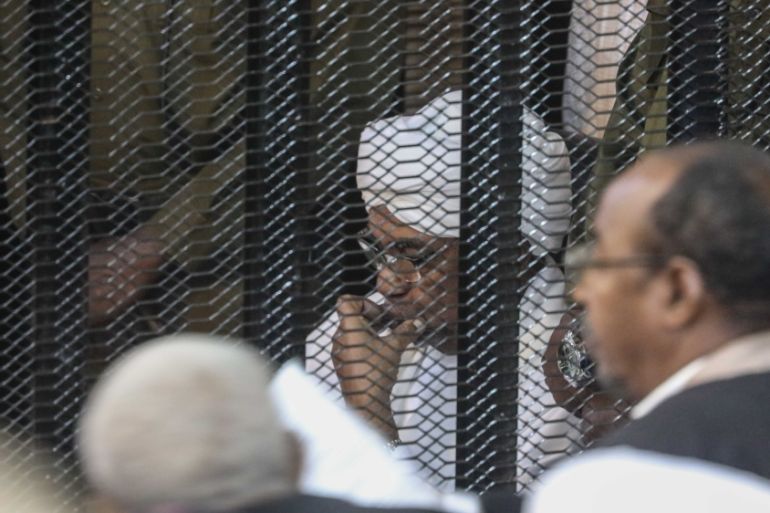Bashir lawyers seek release on bail as corruption trial continues
Former president appears in courtroom for second time as rival demonstrators stage protests outside.

Sudan‘s deposed President Omar al-Bashir has appeared in court for the second hearing of his corruption trial, during which his legal team asked for his release on bail.
Al-Bashir sat in the same metal cage he appeared in on Monday when his trial in the capital, Khartoum, opened. In the first hearing, an investigator said al-Bashir had admitted to receiving at least $90m in cash from Saudi royals in recent years.
On Saturday, the judge heard three witnesses, one banker and two investigators who searched al-Bashir’s residence after his military removal from power in April in the face of mass protests against his 30-year rule.
“We ask the court to release the accused on bail,” al-Bashir’s lawyer Hashem Abu Bakr said, to which the judge answered he would examine a written request.
The trial is set to resume on August 31.
After the hearing, as a large security convoy escorted al-Bashir back to prison, two opposing groups of demonstrators staged protests.
One group of a few dozen protesters were chanting slogans for al-Bashir to face justice not just over corruption but for his role in the country’s deadly conflicts.
“Bashir is a killer” and “he has to face justice”, some of the demonstrators chanted.
Another smaller group had gathered in support of the deposed president.
So far, the military, which overthrew al-Bashir on April 11, says he will not be extradited to the International Criminal Court, where he faces charges of war crimes and genocide linked to the Darfur conflict in the 2000s.
Sudan’s new joint military-civilian council – formed earlier this week – has given no indication it will change the decision to keep him in Khartoum.
The current trial will not touch on separate charges against al-Bashir regarding the killing of protesters during the popular uprising.
Human Rights Watch said on Friday that the national trial “should not overshadow the pressing need for accountability for gross human rights violations and atrocity crimes in Darfur and elsewhere.”